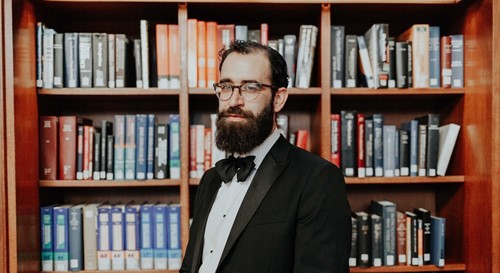“Workism” was coined in February 2019 by The Atlantic’s Derek Thompson in a sharp essay, “Workism Is Making Americans Miserable.” Thompson has an eye for illustrative data:
In a 2018 paper on elite universities, researchers found that for women, the most important benefit of attending a selective college isn’t higher wages, but more hours at the office.
More work hours are now a sign of elite status.
By 2005, the richest 10 percent of married men had the longest average workweek. In that same time, college-educated men reduced their leisure time more than any other group.
To our elites, leisure is not a privilege, or even desirable. There is no leisure: only wasted time.
Thompson speaks for his own set: “I am the very thing that I am criticizing.” Work for people like Thompson, he painfully admits, is a “kind of religion, promising identity, transcendence, and community.”
In times of crisis, such as the COVID-19 pandemic, the values of a ruling class will be exposed, as the class swings into action and decisions are made explicitly by its logic. It is no accident that after the lockdowns were declared, our universal shorthand for returning American life to normal was “Reopen the economy.” We didn’t say “Let us live free,” or demand the reopening of civil society. Debate was waged in economic terms and leisure was deemed “inessential.”
Today, Sunday is just the worst day of the “weekend,” being too close to Monday, the start of the real week, the work week. It is during the work week that our social value is assigned by the kind of job we do and how much money we make. Under the work week, Sunday is meant for material pleasure, blowing off some steam, and recharging for Monday.
In “More Work, Fewer Babies,” a recent report by the Institute for Family Studies, where I am executive director, scholars Laurie DeRose and Lyman Stone show that “workism”—the adoption of professional work as one’s highest value—is strongly associated with fertility decline at both the individual and the national level.
Using the World Values Survey, which surveyed 127,358 respondents in seventy-nine countries from 2017 to 2020, DeRose and Stone show that women who say they value work over family have fewer children than those who say they value family most and those who say they greatly value both family and work.
This is not surprising, but it is good to pinpoint the concrete effect. It is no secret that the world of labor has a tense relationship with the world of home. Feminists have been telling us as much for decades. It’s harder to explain why, as DeRose and Stone also found, those who had a strong attachment to work had still fewer children than respondents who said they didn’t care much for either work or family. Devotion to work, it turns out, is more effective in depressing fertility than is simple disregard for family.
These findings are replicated on the national level. Even among the Nordic countries, fertility has plummeted in recent years, as “workist” sentiments have surged. This trend defies conventional wisdom, which holds that the Nordics’ generous social welfare states help their citizens strike the right work-life balance, so that replacement-level fertility is not threatened by modern employment patterns. It’s simply not so.
A battery of policy ideas to help the American family are currently being considered on Capitol Hill and by the Biden administration: universal free pre-K, paid leave to take care of children or loved ones, an expanded child tax credit. The family needs our help, but we must be careful not to help it extinguish itself by tying it tightly to the labor market as a solution for its problems.
This is especially the case with universal pre-K. This program proposes to relieve families of childcare costs, freeing both parents to enter the labor force. But survey after survey shows that universal pre-K is an elite preoccupation; almost no one else wants it. The average American family wants a parent in the home and financial help to raise its own children. As DeRose and Stone put it, we need to “enable men to work less, rather than seek means for women to work more.”
In a video to promote his essay on workism, Thompson summarizes coldly, “We have essentially made our work our god.” Quite so. And this God of Work is ungenerous with its people, jealously keeping them from their friends, family, the pleasures of reading and poetry, and even—if you’re among the millions who work in the service industry—from Sunday service.
This is an abridged version of a longer piece by Michael Toscano featured in ‘First Things’, with the generous permission of Editor R.R. Reno. Read the full article here.
Michael Toscano is executive director at the Institute for Family Studies.
